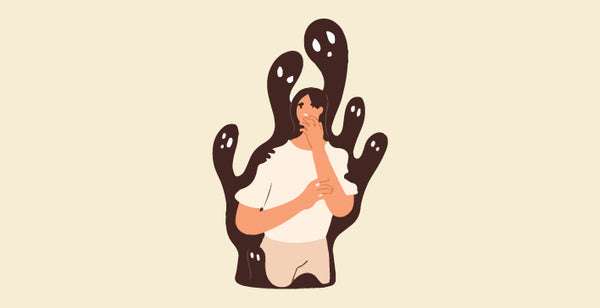Illusion Vs Delusion Psychiatry: Illusions and Delusions are both aberrations of perception in Psychiatry, yet they differ significantly. Illusions are misinterpretations of actual sensory information, such as viewing shimmering heat waves as water in a desert. Delusions, on the other hand, are incorrect beliefs that are not grounded in reality, such as thinking that someone is spying on you despite evidence to the contrary. Understanding Illusion vs. Delusion is critical for appropriate diagnosis and treatment.
Difference Between Illusions and Delusions Psychiatry
In psychiatry, illusions and delusions are both terms used to describe distortions in perception or belief, but they have distinct characteristics. Following are the differences between illusions and delusions:
|
Aspect |
Illusion |
Delusion |
|
Definition |
Misinterpretation of real sensory stimulus |
Fixed false belief not based on reality |
|
Nature |
Misperception of external stimuli |
Rigid false belief resistant to correction |
|
Flexibility |
Correctable with additional information |
Resistant to correction despite evidence |
|
Sensory Involvement |
Primarily sensory perception |
Primarily cognitive distortion |
|
Types |
Visual, auditory, tactile, etc. |
Grandiose, persecutory, somatic, etc. |
|
Reality Testing |
Intact reality testing ability |
Impaired reality testing |
|
Prevalence |
Common, even in healthy individuals |
Less common, more associated with disorders |
|
Association with Disorders |
Can occur in healthy individuals |
Often associated with psychotic disorders |
|
Response to Treatment |
May not require treatment |
Often requires psychiatric intervention |
|
Impact on Functioning |
May not significantly impair functioning |
Can profoundly affect functioning |
Order the Best Jogger Scrub from Here!
What is Illusion Psychiatry?
In psychiatry, an illusion is a distorted perception of a true sensory event. For example, after a lengthy drive, you may notice shimmering water on the hot road ahead, which is actually heat distortion. Illusions are fleeting and easily rectified when you approach closer or get additional knowledge.
Shop Best Lab Coats from Here!
Key Features of Illusion Psychiatry:
- Illusions are misinterpretations of true sensory experiences. For example, seeing shimmering water on a hot road (mirage) or mistaking a coat hanging from a chair for a person in low light.
- Illusions are easily remedied with further sensory information. When you come closer, the shimmering water vanishes, and the coat on the chair is seen to be harmless.
- A person experiencing an illusion is typically aware that their perspective may be incorrect. They may recognise the mirage as an illusion or realise the cloak isn't really a person.
- In general, illusions do not cause suffering. They may create temporary bewilderment, but they seldom impair everyday living or have substantial emotional impact.
What is Delusion Psychiatry?
Delusions, on the other hand, are fixed incorrect beliefs that do not correspond to reality. Someone with delusions may assume they are being pursued by aliens despite evidence to the contrary. Delusions are a sign of mental illnesses such as schizophrenia and may be quite stressful.
Browse Best Scrubs Collection
Key Features of Delusion Psychiatry:
- Delusions are permanent incorrect beliefs that are not founded on reality and cannot be rectified via evidence or reason. They can be about anything: grandiose ideals (becoming a king/queen), paranoid beliefs (being hunted), or weird themes (mind control).
- Individuals with delusions are adamant about their views, even when confronted with contradicting data. Reasoning with them is frequently pointless.
- Delusions may be extremely stressful, resulting in dread, worry, and social isolation. They might cause problems in daily life, making it difficult to trust others or operate well.
- Delusions are frequently a sign of a mental illness such as schizophrenia, bipolar disorder, or severe depression. However, not everyone who has delusions has a diagnosable mental disorder.
Explore All Women's Scrub
Similarities Between Illusions and Delusions Psychiatry
- Illusions and delusions cause distortions in perception or belief.
- Both illusions and delusions can be indicators of mental problems.
- Individuals subjectively experience both illusions and delusions, which can feel quite real to them.
- It is conceivable for a person to have both illusions and delusions at the same time, especially if they are suffering from a serious mental disorder.
- Both illusions and delusions can affect an individual's capacity to appropriately understand reality and operate in everyday life.
- Both illusions and delusions are addressed in psychiatric evaluation and diagnosis, however they are classified differently in diagnostic systems such as the DSM-5.
- Treatment for both illusions and delusions may entail a combination of medication, psychotherapy, and other supportive therapies depending on the root cause of the disorder and its severity.
In terms of perception and mental health, both illusions and delusions can be misinterpretations of reality, but there is one important distinction. Illusions in psychiatry are misperceptions of true sensory information, such as perceiving shimmering water on a scorching road. Delusions, on the other hand, are fixed incorrect beliefs that persist in the face of contradictory facts. Illusions are mostly innocuous, however delusions might be a sign of a more serious mental health problem. Thus, distinguishing between illusion and delusion is critical for psychiatrists in developing appropriate diagnoses and treatment regimens.





